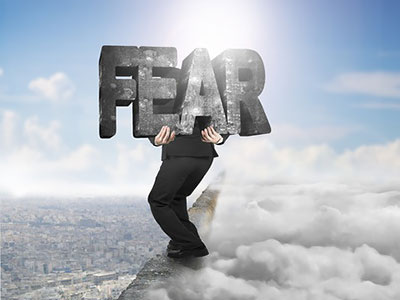awareness
Reclaiming Your inner Peace In A Noisy World
 When was the last time you sat down with yourself? I mean really be in the moment and connnect with your inner being. When did you last pay close attention to your thoughts, feelings, and sensations?
When was the last time you sat down with yourself? I mean really be in the moment and connnect with your inner being. When did you last pay close attention to your thoughts, feelings, and sensations?
So often, we go about life on autopilot, barely acknowledging our inner world. Over time, this becomes a way of being.
We stay caught up in the human busy-ness that keeps us focused on the practical aspects of life. Important, yes, but often at the expense of our spiritual and emotional well-being.
The result is a kind of soul fatigue or a quiet weariness that stems from disconnection. We may notice a sense of restlessness or dissatisfaction, but struggle to trace its roots. That’s often a sign our inner world is calling for attention, urging us to slow down and truly listen.
Even when we do find quiet moments, we rarely use them to check in with ourselves. We live in a world of endless distractions: a computer at our fingertips, the internet in our pocket. This disconnect is creating a divide between real life and our presence within it.
Today, I felt inspired to write about reconnecting with our inner selves and creating more balance between our spiritual and practical experiences.
This doesn’t require a massive overhaul. It just takes intention. It can be as simple as spending a few quiet moments with your thoughts and feelings.
Here are three simple yet powerful ways to slow down and reconnect with simple, meaningful moments in everyday life.
Are You Experiencing A Spiritual Awakening?
 As a psychic reader, I sometimes have clients who quietly confess that they are afraid they might be “going crazy.”
As a psychic reader, I sometimes have clients who quietly confess that they are afraid they might be “going crazy.”
In truth, they are usyally just experiencing the early signs of a spiritual awakening. These profound shifts in your awareness and energy can feel disorienting, yet are deeply meaningful.
So, how can you tell if what you’re feeling is part of a spiritual transformation rather than a personal unraveling?
The term ‘spiritual awakening’ is somewhat overused these days in metaphysical circles. Just about anyone who has a ‘woo-woo’ moment, or gains deeper insight into a situation, or suddenly sees chakra colors, seems to believe they are having a true, full-blown ‘spiritual awakening.’
Spiritual awakening does tend to occur spontaneously, and from what I’ve witnessed, the more open-minded the person is and the less attached to outcomes they are, the more available or ‘ripe’ they are for a spiritual awakening to occur.
Just the other day a client was telling me of her experience while peeling a carrot over the kitchen sink. She said she was looking down at her hands, watching them, and wondering what was animating them?
It can be a strange moment when you discover that you are not really who you thought you were. It can be disorienting, to say the least, to see yourself from such an objective position. However, if you know ahead of time that this is perfectly normal, and others have experienced these signs too, it can make your life a lot easier.
False Education Appearing Real (F.E.A.R)
 I love the acronym F.E.A.R. (False Education Appearing Real) since we all have people, circumstances, phobias and so forth, that can put us into that space.
I love the acronym F.E.A.R. (False Education Appearing Real) since we all have people, circumstances, phobias and so forth, that can put us into that space.
Fear is an instance of emotion that is triggered by the awareness, or anticipation of danger. It can also become a state of being. Excluding clinical fears, needing professional help, there are many fears we simply impose upon ourselves as a result of life experiences.
One of my fears is acrophobia, the fear of heights. When I get within five feet from the edge of a rooftop, I begin to shake.
Climbing 30 foot ladders has me nervous and when I hiked to the pinnacle of the mountain of Macchu Picchu in 2004, I could not take those last six nervous steps onto the plateau pinnacle rock. This was partly being due to a few other tourists already sharing the rock… and I am a little “accident prone.”
Although I was invited by my partner and the guide, I leaned against the rock debating my fear, shaking a little at the prospect and wishing that I could take those final steps, as I might regret it after I hiked down. Part of me did regret not taking those last steps when we got back to the base.
Yet, a bigger part of me knew I had to acknowledge the feelings in the moment, and since I am not a regular exerciser, I already had accomplished something tremendous by taking the hike to the top and back down the back side of the mountain. On the way I enjoyed the magnificent views and spiritual energy for several hours. Continue reading
Your Next Psychic Reading Might Be A Turning Point
 At first glance, psychic reading and manifestation may seem like two separate practices. But if we look deeper, beyond the surface, we discover that these two tools are deeply intertwined.
At first glance, psychic reading and manifestation may seem like two separate practices. But if we look deeper, beyond the surface, we discover that these two tools are deeply intertwined.
They are, in truth, two sides of the same energetic coin. Both are rooted in awareness, vibration, and the mystical truth that our inner world is constantly shaping our outer reality.
Neville Goddard, one of the most compelling and poetic teachers of the Law of Attraction, often reminded us of a simple yet profound truth: imagination creates reality.
In his words, “The world is yourself pushed out.” What we assume to be true, what we habitually feel and believe, eventually materializes in our external experience.
This is exactly why psychic readings can be so transformative. Contrary to the belief that they’re just about predicting the future, readings actually reveal the energetic undercurrents at play in your life right now. They offer a mirror to the thoughts, emotions, and assumptions that are actively creating your reality.
Let me share a story to illustrate this connection.
One of my regular clients called me feeling stuck and disheartened in her career. She had been doing all the “right” things: working late, staying committed, being a team player. But promotions and acknowledgment never seemed to land her way.
When Life Gets Hectic Find Your Way Back To Source
 Whether it manifests in your body, feelings, or spiritual well-being, stress can really knock you off balance. Many of us are all too familiar with this. It sneaks in slowly, or rushes in like a storm. Suddenly, you’re exhausted, scattered, anxious, or just not feeling like yourself.
Whether it manifests in your body, feelings, or spiritual well-being, stress can really knock you off balance. Many of us are all too familiar with this. It sneaks in slowly, or rushes in like a storm. Suddenly, you’re exhausted, scattered, anxious, or just not feeling like yourself.
When this happens, it’s as if your inner compass has been thrown off. You forget what it feels like to be centered, calm, and connected. Fortunately, there’s a beautiful and simple way back to your “true north”: meditation.
Meditation is one of those practices that has stood the test of time for a reason. It doesn’t just help us handle stress better. It helps raise our energy and bring us back into balance.
And beyond that, it can offer us something truly magical: a direct experience of our connection to the unified field of intelligence. Some people call it the void. Others call it the Source, Spirit, or simply Presence. No matter what you call it, it’s that vast, peaceful space that holds everything together, and we’re already a part of it.
I’ve personally felt the difference meditation makes in my life. But I’ll be honest: these past few weeks have been a whirlwind. So much has been going on, and in the chaos, I missed my daily meditations. And wow, did I feel it.
When I don’t take the time to realign, everything feels just a little harder. Meditation helps me feel whole. It’s like a reset button for my body, mind, and spirit. Especially with the kind of energy work and spiritual focus I need in my daily life, I rely on it to keep me grounded and in tune.
How To Be Mindful On The Go!
 To some individuals, being mindful while on the go might seem a contradiction in itself. However, the truth of the matter is that there are a plethora of ways to cultivate the art of mindfulness that do not involve simply sitting still.
To some individuals, being mindful while on the go might seem a contradiction in itself. However, the truth of the matter is that there are a plethora of ways to cultivate the art of mindfulness that do not involve simply sitting still.
People turn to mindfulness for many reasons. For example, they may have a medical condition that needs managing, work issues that require resolving, or just simply want to feel more present in their everyday lives.
With the pace of modern life, it is clear to see why people become easily distracted and lead somewhat complicated lives as a result – all of which can be both emotionally and physically draining.
Whatever the reasons may be as to why a person turns to mindfulness, it should, indeed, help them to create a more balanced lifestyle.
That said, mindfulness should not be seen as a magical cure-all, but more an efficient way of relating to personal issues differently.
Interestingly, research has revealed that physiological changes do actually take place within an individual practicing mindfulness meditation. Such changes occur within the brain and some people experience better blood pressure and an enhanced immune system.
The above said, even those among us who practice mindfulness faithfully, can find it somewhat challenging to take what we have learned and incorporate it into our everyday lives. Instead, we tend to allow ourselves to be distracted and develop automatic behavior patterns instead.
The Miracle Gift Of Spiritual Healing
 I discovered that I had the spiritual gift of healing many years ago when I went to visit my father in the hospital. He was in great pain and something told me to gently touch the knee he had just had surgery on. It was not my intention to accomplish anything, just to comfort him. But then I saw his expression change from agonizing pain to instant relief. That to me was a miracle!
I discovered that I had the spiritual gift of healing many years ago when I went to visit my father in the hospital. He was in great pain and something told me to gently touch the knee he had just had surgery on. It was not my intention to accomplish anything, just to comfort him. But then I saw his expression change from agonizing pain to instant relief. That to me was a miracle!
The next great healing miracle happened when one of my twin daughters was ice skating when she was about 8 years old. I was watching the children enjoy the beautiful winter day when my daughter suddenly slipped and fell. I will never forget her painful scream. I knew immediately that this was really bad! By the time I got to her, others were helping her, but she would not stop screaming. Hearing her in such pain shot through my heart like a bullet.
When I got to her, I immediately saw the bone protruding through her skin. I put my hands over the fracture on her forearm and said, “It’s okay, it’s okay. Immediately she stopped crying and said, “Mommy, it doesn’t hurt anymore. I was stunned and so was everyone else.
I held her arm all the way to the hospital, and when we got there, they made me remove my hands. Again I had to listen to my daughter scream in pain and I felt helpless.
After they immobilized her arm, they let me see her. I touched the cast on her arm and immediately felt that it was not properly applied. Of course, they refused to listen to me at first, but I kept insisting that something was wrong. Finally, they agreed to take a second x-ray, which showed that my daughter’s arm was indeed not in the correct position. So she had to have it done again. One of the nurses asked me how I knew. I never answered.